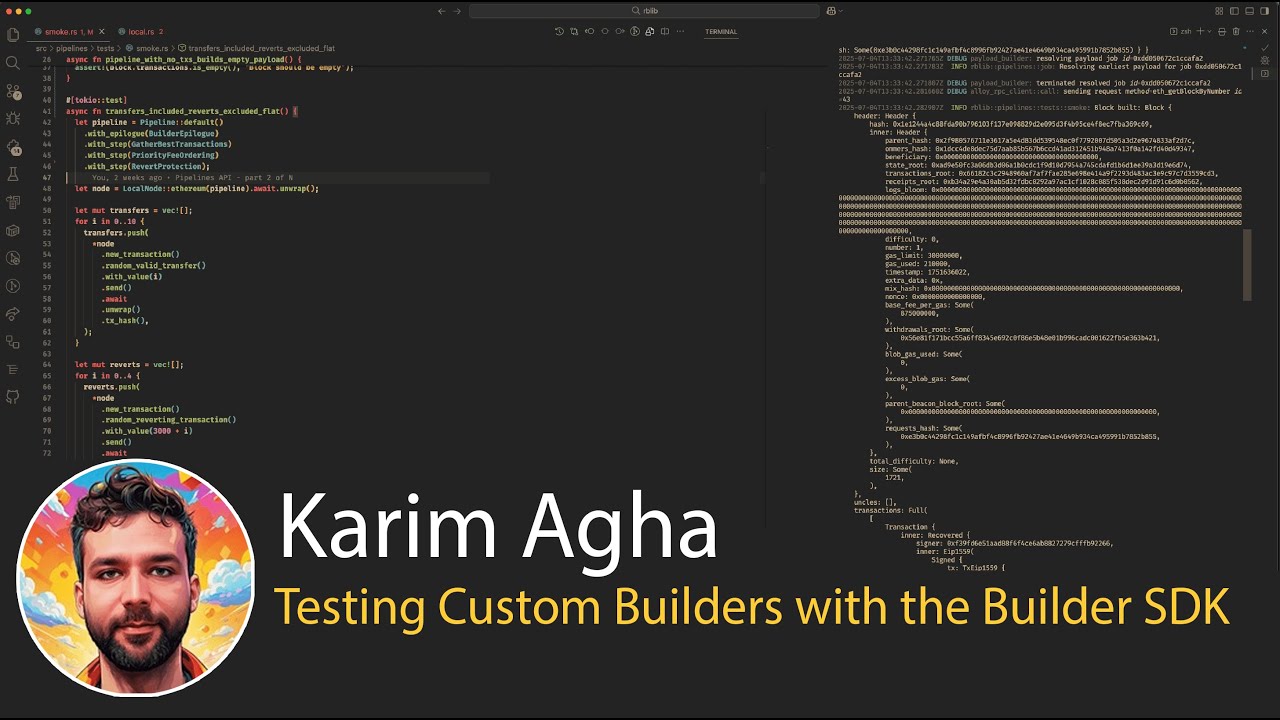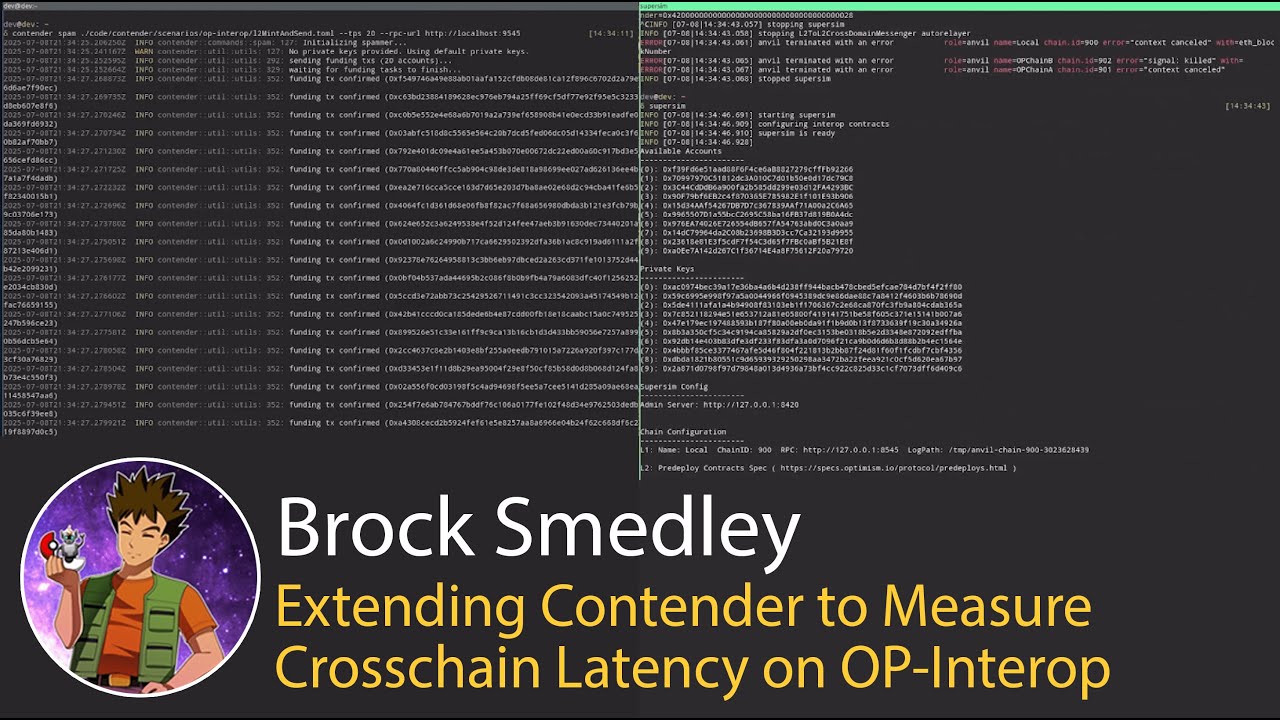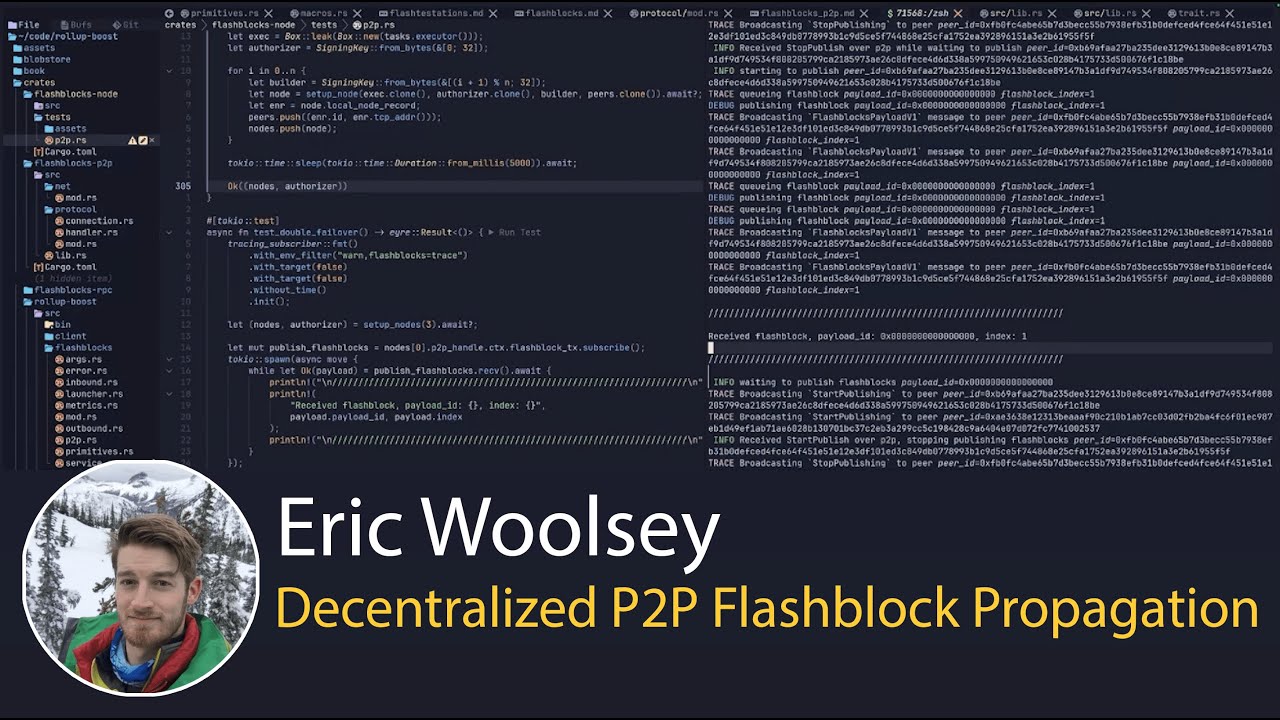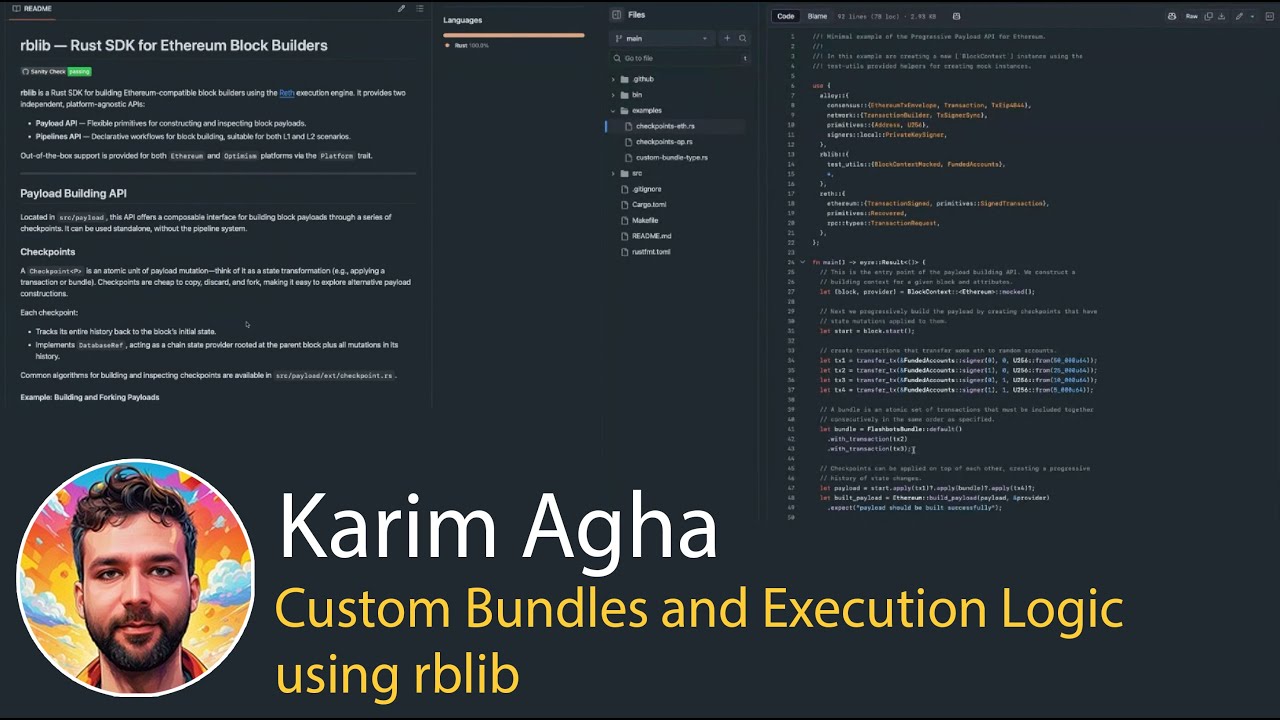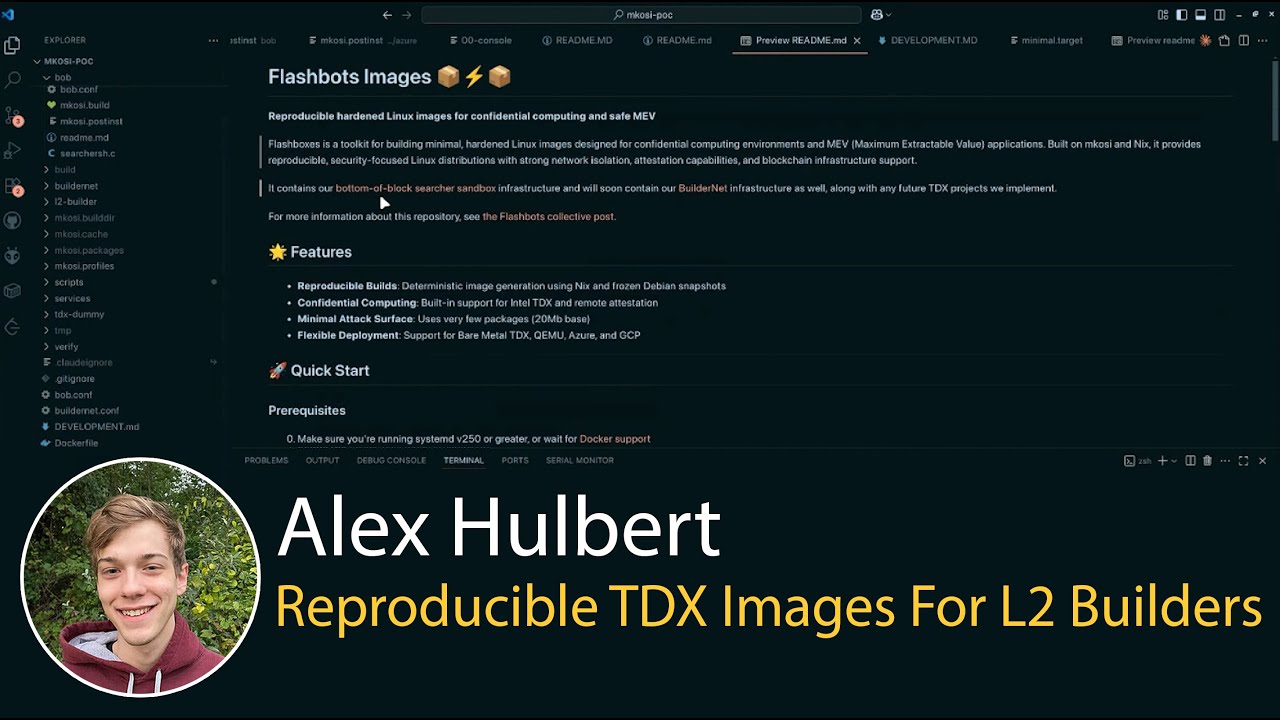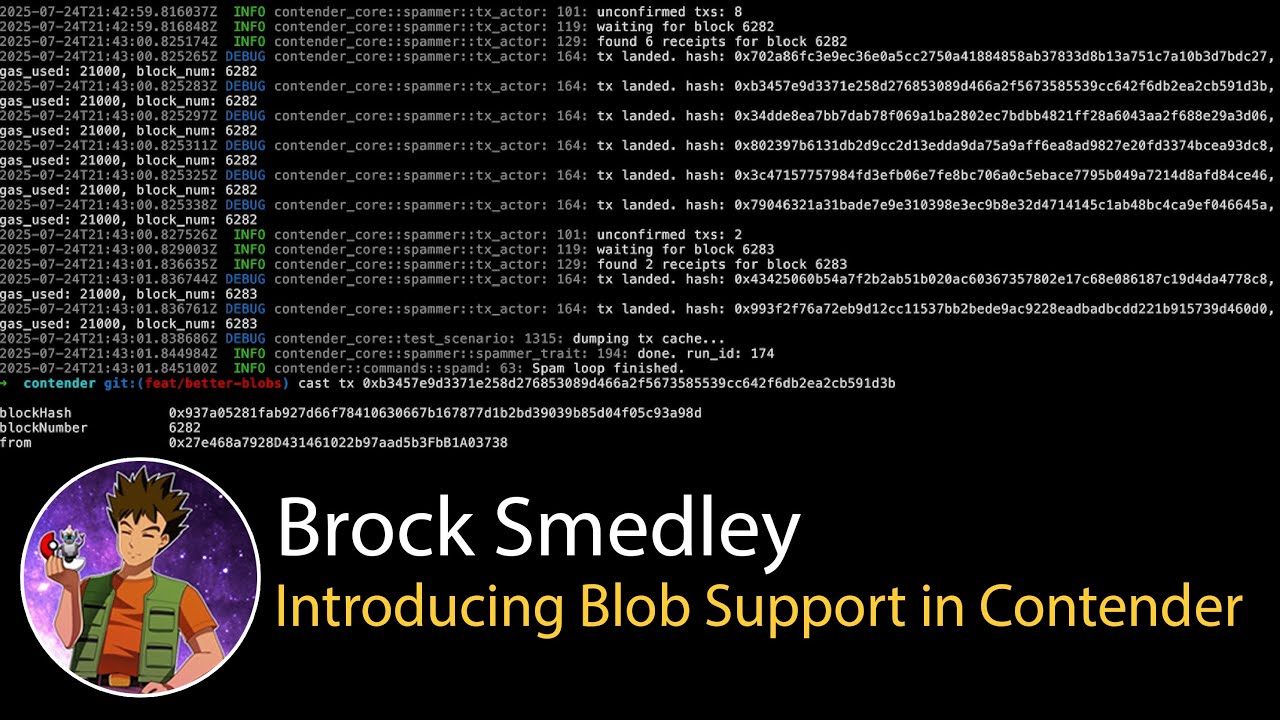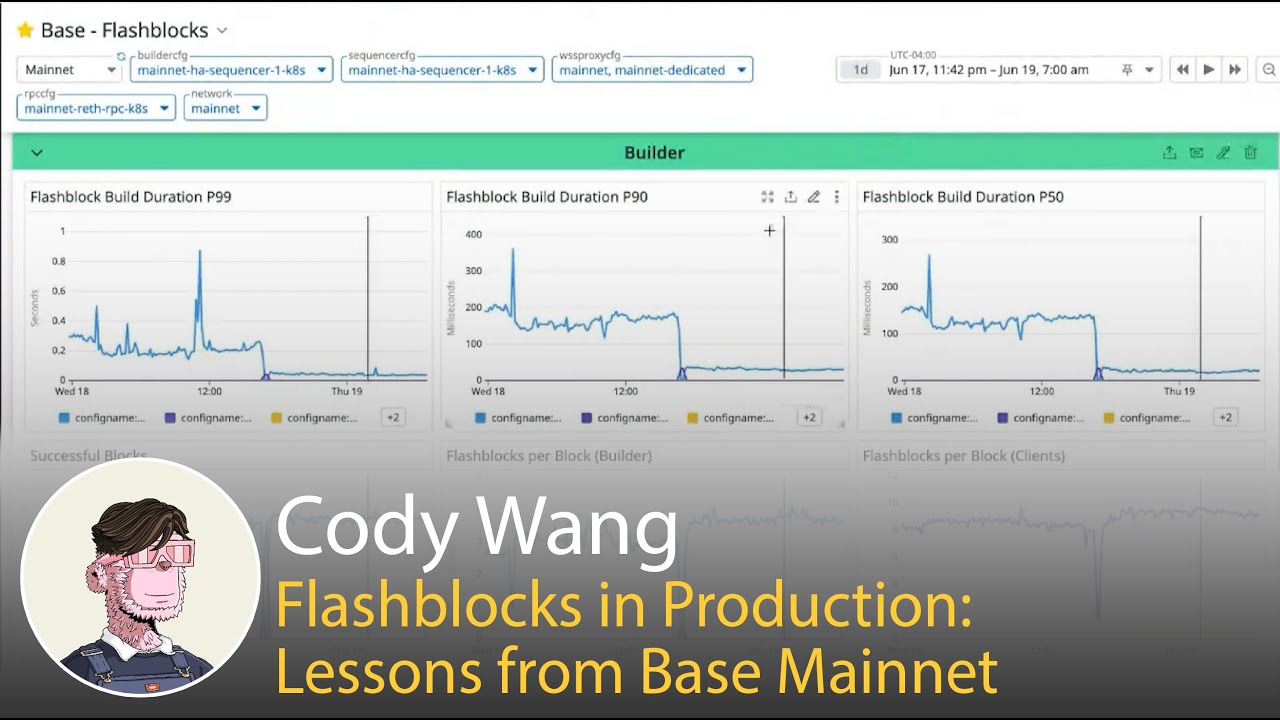A dozen fresh hot demos, you can feel the speed of development in the L2 block building space accelerate with this one!
In this demo the progress made to the Builder SDK that I introduced in a previous video. I’ll also explains how you can define payload-building pipelines using modular, composable steps, such as transaction selection, fee ordering, and revert filtering, and run them inside a live Reth node instance.
The SDK supports both flat and loop-based pipeline execution, simulating realistic block production through the Engine API. Key features include persistent step state, platform-agnostic design, and support for nested control flows. The long-term goal is full feature parity with production builders like op-rbuilder.
In this demo, I’ll present a modified use of the Contender framework to measure cross-chain message latency on the OP interop platform.
Previous versions of Contender were limited to single-RPC usage, this new version has been adapted with custom callbacks to detect message events and trigger relay transactions between chains. Furthermore, the reliance on admin APIs and auto-relayers has been replaced with local functions and manual relaying, making it compatible with any OP interop deployment. I’ll publish a more in-depth forum post for those interested in building custom cross-chain spammers.
This presentation covers recent improvements to Flashblocks aimed at improving delivery timing. I will also go through the new cancellation token system which enforces a 200, or 250ms timeout.
Additionally, a leeway-time parameter was added to end block building ~50ms early, accounting for early consensus requests and system time drift. These changes make Flashblocks more reliable and improves the predictability and reliability of Flashblock delivery
This demo showcases an early prototype for peer-to-peer Flashblock propagation, designed to replace centralized WebSocket distribution via Rollup-Boost. It improves resilience during sequencer failovers, even mid-block, by enabling builders to coordinate Flashblock publication directly over the network, preserving preconfirmation guarantees. This approach simplifies Rollup-Boost, enhances scalability, and handles edge cases like race conditions without full consensus overhead.
This is an early-stage prototype, but it highlights a credible path toward decentralized Flashblock propagation aligned with Ethereum’s long-term goals.
In this demo I present recent updates to rblib, our Rust library for flexible and platform-agnostic payload construction. This enable structured and composable block construction workflows, with full support for both individual transactions and bundles.
The focus is on the new Payload API, which introduces composable block building, with first-class support for bundles. The SDK is platform agnostic so it works with Ethereum and Optimism as is without any code changes. This work lays the foundation for flexible, multi-platform block construction ahead of the upcoming public release of rblib, which will be accompanied by docs and examples.
I demonstrate payload assembly on Ethereum and Optimism, including custom bundle validation logic (e.g., minimum profit threshold) and enhanced testing utilities. I also demonstrate how to build payloads that adhere to L2-specific constraints, such as Optimism’s sequencing rules.
In this demo I walks through recent work on flashbots-images — a general-purpose framework that now includes full support for the L2 builder with fully reproducible, verifiable TDX builds.
This system offers a significantly simpler alternative to legacy tools like Yocto, allowing engineers to declaratively define packages, kernel parameters, and build processes with minimal overhead.
In this video I showcase recent enhancements to Contender, focusing on its new support for blob transactions. The update introduces a spam blobs subcommand, allowing users to generate high-throughput blob transaction traffic.
The tool now accepts optional blob data and recipient parameters, enabling users to inject custom payloads and route transactions to arbitrary or pre-deployed contract addresses. These improvements make it easier to simulate and test blob-based throughput, contract interaction, and stress scenarios in a local dev environment.
In this demo, I present the new bundle support feature recently launched on Unichain, with a focus on Revert Protection.
Using our Contender testing framework, I runs a full scenario on Unichain Sepolia, demonstrating how bundle construction works, how to activate Revert Protection, and how this affects execution results and latency metrics.
The walkthrough highlights performance characteristics and expected outcomes under failure conditions for searchers building sophisticated onchain strategies.
In this video, Cody shares insights from launching Flashblocks on Base mainnet. The demo covers two major changes pushed upstream:
- Offloading state root calculation from op-rbuilder to op-geth via the
use_l2_client_for_state_rootflag. This significantly reduces block building latency from P90 ~200ms to ~30ms. - The introduction of the
allow_traffic_to_unhealthy_builderflag during EL sync and prioritizing CL sync.
Hello everyone, in this video, I presented the concept of Rollup Boost meeting POD to create censorship-resistant, verifiable priority auctions. I focused on the challenges of the current architecture, particularly the risks of transaction censorship within the builder node. I introduced POD as a decentralized programmable network designed for low-latency protocols, which allows users to submit bids and receive finality certificates, ensuring no bids are censored. I demonstrated the system live on the POD DevNet, showcasing how it operates with a custom builder. I encourage you to explore the documentation at docs.pod.network for more details and to engage with the system.
